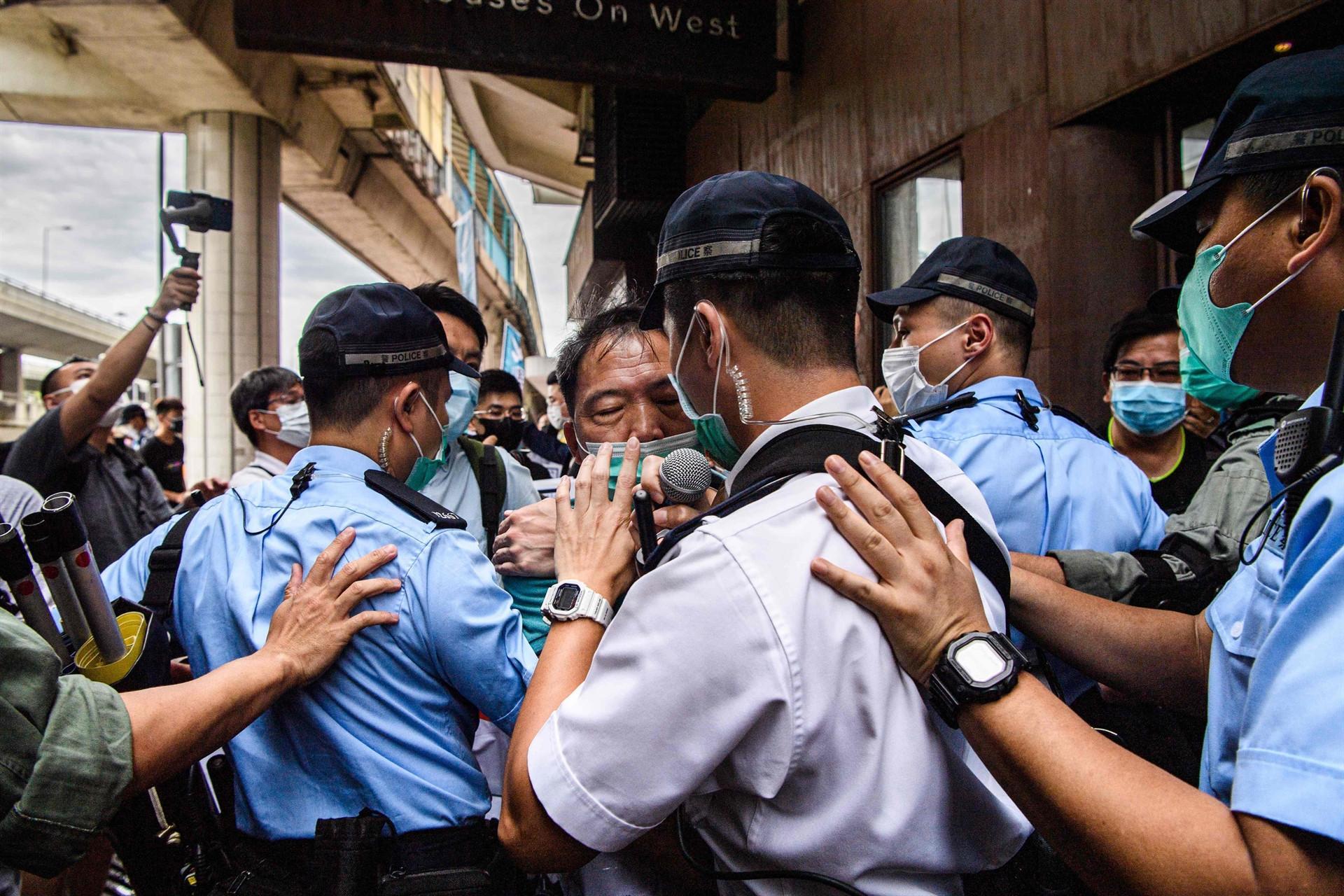
A measure calling for "powerful" steps to curb Hong Kong's pro-democracy movement was submitted to China's rubber-stamp parliament on May 22, a move expected to fan fresh protests in the semi-autonomous financial hub.
The draft measure would authorise Chinese lawmakers to directly enact controversial security legislation long called for under Hong Kong's mini-constitution but which authorities in the city have been unable to push through due to public opposition.
The proposal has been condemned by the United States and Hong Kong pro-democracy figures as a further assault on freedom in a city rocked by seven months of massive and sometimes violent anti-Beijing protests last year.
But a top Chinese legislator told the opening session of the National People's Congress (NPC) that security legislation was needed to thwart "foreign forces" that China blames for the Hong Kong unrest.
These unspecified actors "have colluded with Hong Kong's anti-China forces" and used the former British colony to "engage in activities that endanger our country's national security," said Wang Chen, vice chairman of the NPC's Standing Committee, the congress's actual law-making organ.
"We must take powerful measures to lawfully prevent, stop and punish them," Wang said.
Article 23 of the so-called Basic Law governing Hong Kong affairs under Chinese control states that the semi-autonomous city must enact national security laws to prohibit "treason, secession, sedition (and) subversion" against the Chinese government.
Hong Kong reverted to Beijing's control in 1997 but the clause has never been implemented due to deeply held public fears it would curtail Hong Kong's cherished rights, such as freedom of expression and the press.
A bid to enact such legislation in 2003 was shelved after half a million people took to the streets in protest, but the initiative has been put back on the table in recent years as the pro-democracy movement has gained pace.
Wang said Hong Kong's delays in implementing the security law have forced China to take action.
"More than 20 years after Hong Kong's return, however, relevant laws are yet to materialise due to the sabotage and obstruction by those trying to sow trouble in Hong Kong and China at large, as well as external hostile forces," Wang said.
Wang did not specify who these forces were, but China has previously accused the United States of meddling in Hong Kong.
The compliant NPC approves everything put forward by the Communist Party government and the measure is likely to pass during this session.
The Standing Committee would then be tasked with formulating relevant legislation "at an early date", Wang said.
Unlike the rest of China, Hong Kong enjoys freedom of the press and speech, and many in the city fear these liberties are being eroded by Beijing.